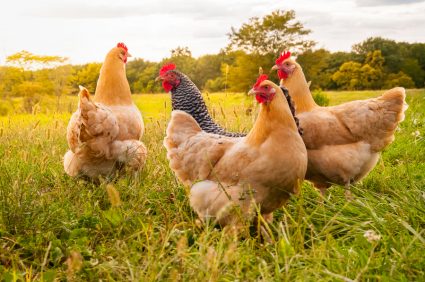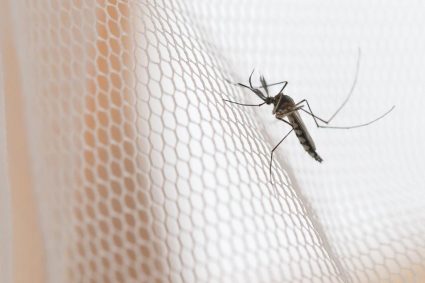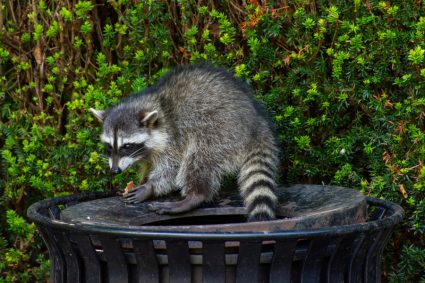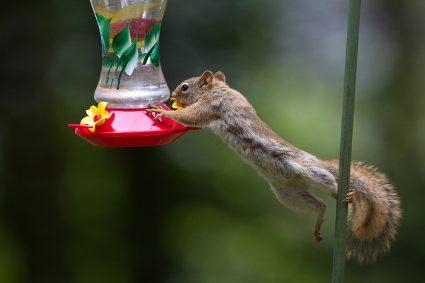
Skunks, known for their distinct black and white coloration and unique odor, are often considered a nuisance by homeowners due to their habit of digging up lawns. But why do they do this? What attracts them to your lawn, and how can you deter them? Let’s delve into the world of skunks and explore these questions in detail.
Skunks dig up lawns primarily in search of food. They are particularly fond of grubs, worms, and insects, which are often found just beneath the surface of the soil. Skunks are nocturnal and do most of their digging at night, leading to significant lawn damage. To deter them, homeowners can use repellents, install lights or fences, eliminate food sources, and maintain a clean yard.
Skunks and Their Diet
Skunks are omnivores, meaning they eat both plants and animals. Their diet varies with the seasons. In spring and summer, they primarily feed on insects such as grasshoppers, bees, beetles, beetle larvae, and crickets. They dig up the ground to reach larvae of various insects like hornworms, cutworms, and Japanese beetles. During fall and winter, they scavenge for fruits, nuts, and seeds. Skunks are also known to consume small mammals like mice, rats, and rabbits.
Why Skunks Dig Up Lawns
Skunks dig up lawns primarily in search of food. They are particularly fond of grubs, worms, and insects, which are found just beneath the surface of the soil. With their strong sense of smell and sharp claws, skunks are adept at locating and digging up these food sources.
The digging usually happens at night, as skunks are nocturnal creatures. They create holes by pushing their noses into the lawn and then using their front paws to dig out the area. This can lead to numerous holes and large patches of loose turf, causing significant damage to a lawn overnight.
Signs of Skunk Activity
How can you tell if a skunk has been digging up your lawn? Some signs to look out for include:
- Large chunks of grass pulled out of the dirt
- Tracks that match the unique print of a skunk’s paw
- A strong, distinct smell, especially if the skunk has sprayed in the yard
- Divots and diggings in flower beds and lawns
- Mounds of dirt and 2-3 inch deep holes
Preventing Skunks from Digging Up Your Lawn
While skunks can contribute to the ecosystem by controlling pests and aerating the soil, their digging can cause extensive damage. Here are some ways to deter skunks from digging up your lawn:
- Use household scents: Skunks dislike strong smells like ammonia, white vinegar, or citrus-based cleaners. Diluting these substances and spraying them around your lawn can deter skunks.
- Install lights: Skunks are nocturnal and dislike bright light. Installing motion-activated floodlights can startle and deter them.
- Use skunk repellents: Skunks dislike odors like citrus, ammonia, mothballs, and predator urine. Use these smells to scare off skunks.
- Eliminate food sources: Use a pesticide to remove grubs, insects, and other food sources from your lawn. This will make your lawn less appealing to skunks.
- Install a fence: Skunks are poor climbers but great diggers. Install a fence around your lawn and bury it several inches underground to prevent skunks from digging under it.
- Maintain a clean yard: Remove piles of wood, compost, or junk that could attract skunks and provide them with shelter. Seal off spaces beneath porches, decks, and outbuildings to prevent skunks from denning there.
By implementing these measures, you can effectively discourage skunks from digging up your lawn and keep your property skunk-free. Remember, it’s important to use a combination of these methods for the best results.
Conclusion
Skunks dig up lawns in their quest for food, causing significant damage in the process. However, by understanding their behavior and implementing preventive measures, you can protect your lawn from these nocturnal visitors. Remember, it’s always better to prevent skunk activity than to deal with the aftermath of their digging.
Frequently Asked Questions
What time of the year are skunks most active in digging up lawns?
Skunks are most active in digging up lawns during the spring, summer, and early fall when their preferred food sources like insects, grubs, and worms are abundant.
Can skunks pose a threat to my pets?
Yes, skunks can pose a threat to pets. Skunks are known to spray a foul-smelling liquid when threatened, which can cause temporary blindness and irritation in pets. Also, they can carry diseases like rabies which can be transmitted to pets through bites.
Are there any humane ways to remove skunks from my yard?
Yes, there are humane ways to remove skunks from your yard. Live trapping is a common method. However, it’s recommended to hire a professional wildlife removal service to do this, as handling skunks can be risky due to their defensive spraying and potential to carry diseases.
Are there any natural predators of skunks that I can use to deter them?
Skunks have few natural predators due to their potent defense mechanism. However, large birds of prey like owls and eagles, as well as animals like coyotes and bobcats, can pose a threat to them. Using predator urine can work as a skunk deterrent, but it’s important to use it carefully to avoid attracting the predators themselves to your yard.
Will skunks dig up my vegetable garden?
Yes, skunks may dig up your vegetable garden in search of food. They’re especially attracted to crops that harbor insects or provide cover, like corn and squash. To protect your garden, consider fencing and other deterrent methods mentioned in the blog post.











